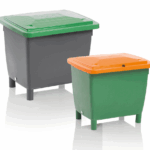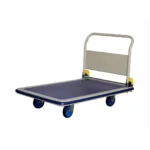Scared of wearing whites on your periods. Well, you are not alone. No one wants to wear whites when they are on their periods because let us say this everyone hates a red stain on their beloved clothes. But all this often leads to women wondering about why they are blessed with this torture and why they have to go through all this for a specific time every month.
Thus today we have decided to answer some of the common questions and state some inevitable facts as well for this one.
What is Menstruation?
Menstruation is a common process that every woman is highly familiar with. Women are subjected to this natural process every once a month. The uterus through the vagina sheds blood and associated tissue. Although it is one of the most common medical processes to occur, still it is whispered through closed doors and we have yet to publicize it in larger forms.
Women although experiencing it are often not aware of the reality and what goes behind it. Almost every woman goes through this during their reproductive age and thus a total of 2 billion women experience it around the globe.
How does Menstruation Work?
Periods are a time when a women’s body goes through various hormonal changes. The ovaries are then in charge of releasing two types of hormones that are estrogen and progesterone. Both these hormones are responsible for the development of the lining of the uterus and thus the attachment of a fertilized egg after the span of 25 to 30 days. The egg then starts developing and that’s how the whole reproductive cycle commences.
If there is no egg for the lying it starts to break on its one. This results in bleeding. This is the process that happens every month. After the cycle of 7 days, the hormone production restart, and then the lining gets rebuilt.
What are Normal Periods?
Women are often seen wandering about what are normal periods and how many days they last. Let us discuss what are normal periods in the said context.
For periods to be deemed normal, they must last for 28 days. The periods tend to last between 3 to 5 days and in some cases 7 days. It is a usual cycle but it might differ from woman to woman depending on age and hormonal issues.
Women who have passed their prime might experience periods between 21 to 38 days. On the other hand in young women’s period might last from 21 to 45 days.
If you want to count the days of the menstrual cycle on your own you should start from the day of your last period and then count till the first day of your next period. It must range between 24 to 38 days.
It is rather normal for your menstrual cycle to vary from month to month for 2 days or even a week. Thus make sure to not panic. If you are not aligned with the dates of your periods you can track them via a period app.
How to Track Your Period?
Now that you have some basic understanding of why periods are important and stuff. Let us discuss some basic information regarding tracking them. You can adopt an activity of writing your period’s date down on your calendar. But in case you have witnessed a pattern of irregularity then you should consult with your doctor. He or she might recommend you a Doppler ultrasound test to assess the situation.
But make sure to keep an eye on the following:
Unexpected Bleeding Instances
If you are experiencing bleeding other than your periods through your vagina or your uterus or lower abdomen of the body then you should keep a record of it. Remember to note the following:
- Volume
- Timing
- Color of discharge
Cramping
Cramps during periods are a done deal. But if you are encountering them other than during your periods then it is a sign of underlying sickness. Various gynecologists in Karachi have commented that you need to keep such changes in a notepad. Remember to notice the severity origin and timing of these cramps and their pain.
Mood Swings
Women are often seen blaming their mood swings on PMS. But the story might be a little more complex than that. And if you are experiencing mood swings with irregular periods then you need to visit a doctor.
Flow
Another thing that you should be mindful of is the flow of your periods. If you are changing your tampons, pad, or cloth more than needed then it is a matter of concern.
The Bottom Line
All the above information carefully advocates why periods are important for a female and why you need to keep a track of it. Thus make sure to eat right during these times and if you feel any anomaly you can reach out to your healthcare provider.







